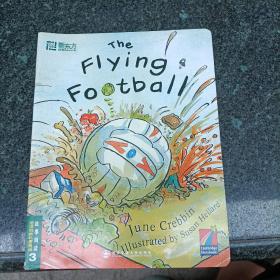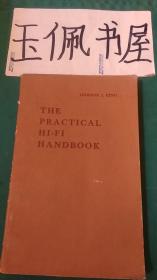
Zionism and the Fin de Siècle: Cosmopolitanism and Nationalism from Nordau to Jabotinsky
¥ 162 ¥ 24.95 九五品
仅1件
作者Michael Stanislawski
出版社University of California Press
出版时间2001
版次1 edition
印刷时间2001
装帧平装
页数312页
定价24.95元
货号c327
上书时间2011-06-23
- 在售商品 暂无
- 平均发货时间 9小时
- 好评率 暂无
- 最新上架
商品详情
- 品相描述:九五品
- 商品描述
- 本书原定价24.95美元,净重460克。[图书分类:以色列政治]Michael Stanislawski\'s provocative study of Max Nordau, Ephraim Moses Lilien, and Vladimir Jabotinsky reconceives the intersection of the European fin de siècle and early Zionism. Stanislawski takes up the tantalizing question of why Zionism, at a particular stage in its development, became so attractive to certain cosmopolitan intellectuals and artists. With the help of hundreds of previously unavailable documents, published and unpublished, he reconstructs the ideological journeys of writer and critic Nordau, artist Lilien, and political icon Jabotinsky. He argues against the common conception of Nordau and Jabotinsky as nineteenth-century liberals, insisting that they must be understood against the backdrop of Social Darwinism in the West and the Positivism of Russian radicalism in the fin de siècle, as well as Symbolism, Decadence, and Art Nouveau. When these men turned to Zionism, Stanislawski says, far from abandoning their aesthetic and intellectual preconceptions, they molded Zionism according to their fin de siècle cosmopolitanism. Showing how cosmopolitanism turned to nationalism in the lives and work of these crucial early Zionists, this story is a fascinating chapter in European and Russian, as well as Jewish, cultural and political history.Michael Stanislawski is Nathan J. Miller Professor of Jewish History at Columbia University. His previous books include Psalms for the Tsar (1988) and For Whom Do I Toil? (1988).“A pioneering intellectual biography and [a challenge to] conventional understandings of the great-leader biography as a genre. This is a rich and complex book. [Stanislawski\'s] writing is always lively and often brilliant.”—Forward“An important contribution for serious students of Zionism and yet another example of the continuing intensity of the new historians.”—Jerusalem Post\"Stanislawski shows that each of these three [Nordau, Lilien, and Jabotinsky] came to Zionism out of engagement with the larger issues that preoccupied intellectuals and artists at the turn of the century and that the adoption of Jewish nationalism was by no means a foregone conclusion or an inevitable trajectory. The chapters are written in a lively and accessible style.\"—David Biale, author of Eros and the Jews\"Stanislawski has literally rewritten the early history of Zionism. . . . [His] discovery and masterly use of Nordau\'s correspondence with Olga Novikova and his treatment of Jabotinsky\'s youthful journalistic sallies are models of lucid and absorbing historical analysis.\"—Derek. J. Penslar, author of Shylock\'s Children
相关推荐
-

The Siege:the saga of Israel and Zionism
八五品广州
¥ 198.00
-

zionism, israel ,and the palestinian arabs .questions and answers
八五品襄阳
¥ 65.00
-

THE SIEGE THE SAGA OF ISCAEL AND ZIONISM 详情看图
八品平顶山
¥ 95.00
-

All Things Possible: My Story of Faith Football and the Fi
九品深圳
¥ 38.80
-

The FI Ying Fo tbsll
九品葫芦岛
¥ 5.00
-

THE PRACTICAL HI FI HANDBOOK
八五品菏泽
¥ 150.00
-

QUESTIONS AND ANSWERS Hi-Fi
八五品石家庄
¥ 70.00
-

What hi fi sound and vision
九品北京
¥ 10.00
-

THE BERENSTAIN BEAR SCOUTS AND THE SCI-FI PIZZA【英文原版】
八五品南京
¥ 20.00
-

THE LEGEND OF COPAS AND HAWKINS LP HI-FI 12寸现货
九品沈阳
¥ 60.00
— 没有更多了 —
















以下为对购买帮助不大的评价